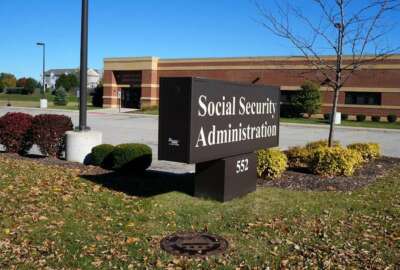
Back to the office? How about never?
When will employees be told to come back to the office? And once we know that, will they do it?
According to some studies, about one-third of workers nationwide have returned to the office. Meaning two-thirds are still at home. The real question is what next, and what will you do when you get your notice to return to the office.
As the COVID numbers drop and there are end dates for many mask mandates, federal agencies are making plans to return tens of thousands of employees to their former offices. A few employees have teleworked (mostly part time) for years. For most, the home office — with casual attire and zoom conferences — is little more than two years old.
Some might argue that the societal changes we’ve seen because of the pandemic may equal changes on the homefront during World War II, when women entered the workforce in large numbers.
Three years ago, teleworking was a rarity in the federal government. Nobody could have predicted the almost overnight expansion of home-based workers in or out of government. It was a different time. The Trump administration was moving rapidly to eliminate or shrink teleworking at Interior, Agriculture and other agencies. Many supervisors equated working from home with lower productivity. But when the pandemic hit, most of the “problems’ raised and predicted by I-want-you-in-my-sight bosses failed to materialize. And some of the perks of working from home (fewer commuters, less pollution) were not envisioned just a few years ago.
The next step, of course, is what is the next step. When will employees be told to come back to the office? And once we know that, will they do it? A recent column on the subject of back-to-the-office got some comments, almost all from people who said they will quit before returning to the brick-and-mortar, 9-to-5 grind. For starters, here’s a fed who’s worked from home both in the private sector and government:
“Coming from the private sector, I worked at home for many years before becoming a federal employee. That experience taught me much, to see the federal agencies are going down the same road my employer did where they tried to return workers to the office after a pilot work at home program. The company within a year lost all of the workers in the pilot program over business-as-usual ideas that opted for lower pay, relocation or other career choices rather than remain working in the office.
You can’t put the genie back into the bottle, was the problem. The pilot program workers had been working from home for over two years, where they adapted a home life they didn’t want to give up. Returning to the office, petty grievances started fast, including over reassigned parking spots. Once productive teams couldn’t get along, absenteeism rose and quality went down. The project frankly was doomed from the start, as the company [just wanted to report] back to a blue chip company it contracted for that they gave it a try. The team of work-at-home workers was supposed to fail, and the company gave us plenty of reason to fail. When the pilot team stuck to it, exceeding all expectations, the company pulled us back into the office anyway.
I am seeing the grinding uncertainty of the return-to-office date among my coworkers. For me, personally, that experience on the pilot project to see the devastation of workers ordered back to the office was horrific. I don’t want to go through that again. It’s already been decided by myself and my family that I resign when we are returned to the office. We went through so much drama as a family to telework where we had to move for a suitable space. Now that we have space and the lifestyle of me working from home I will find another position.
My boss for the pilot program ordered me as the manager to get my workers back at their desks. He was certain the carrot-and-stick routine would work, to threaten to fire workers that refused to return. He catered in a big breakfast the day we returned and handed out vending machine tokens. No one ate anything from the breakfast trays, no one drank the free coffee. Janitor found the tokens in the trash. Every pay period the resignations started until all 40 of the pilot workers resigned. I was the last to resign and passed up on a promotion rebuttal offer.
The pilot program was started after Hurricane Andrew devastated my company’s IT department. The whole building was gone. The company got it right that they needed more IT workers spread out across their different divisions and locations. They sorely misread the job market to assume taking their jobs to markets paying less would earn employee loyalty. The only IT staff that stayed were the executives making well into six figures.
I don’t want better pay. I want better hours on my terms. The 40 hour week isn’t competitive. I can work from home full time with a 35 hour work week for 10% less with comparable health benefits.
Thanks for hearing me out.” -Anon
And here’s another firmly in the “never going back” camp:
“Good question! My answer: Never. No way. I will not go back to the office, at least not five days a week. I’ve talked with a number of colleagues and most seem to feel the same way. We miss some aspects of the office, including interaction with real people. However, that could easily be done by allowing many of us to continue working from home 2 or 3 days per week. I have been much, much more productive since this started. Most of the time I would have spent commuting I have spent working. This is a win-win people. Don’t be in such a hurry to return to the good old days which, in retrospect, weren’t always all that good.” –Homeboy Dave
Nearly Useless Factoid
Aside from lovers, St. Valentine is also the patron saint of epileptics and beekeepers.
Source: Britannica
Copyright © 2025 Federal News Network. All rights reserved. This website is not intended for users located within the European Economic Area.
Mike Causey is senior correspondent for Federal News Network and writes his daily Federal Report column on federal employees’ pay, benefits and retirement.
Follow @mcauseyWFED





